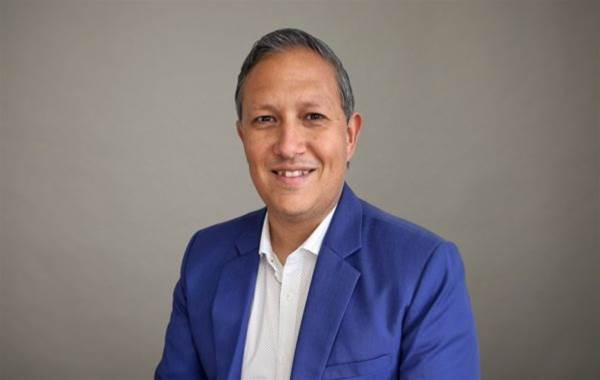The Australian IT channel has largely welcomed the result of the recent Australian federal election last month, expressing optimism for the industry as a whole over the coming years.
The recently elected government made a series of policy pledges to improve the tech and cyber security sector in its election campaign.
This included fixing the tech skills shortage by creating 465,000 fee-free TAFE places and 20,000 additional university places, spending an extra $2.4 billion on NBN upgrades to get 90 percent of Aussies in the fixed-line footprint to order gigabit speeds by 2025 and a $1 billion ‘Critical Technologies Fund’ to support the local tech industry.
The party also promised to reduce “wasteful spending on private external labour” by $3 billion over four years and reinvest $500 million in the Australian Public Service, a move likely to affect IT contractors.
The new government has already created a standalone cyber security minister with MP Clare O'Neil, and also moved the Digital Transformation Agency from the Department of Prime Minister and Cabinet to the Department of Finance.
CRN spoke to a number of IT channel companies to find out how they expect the new government would impact their businesses, how it could resolve the skills shortage and what support the sector needs. Here's what Stickman Cyber, CyTrack, DigiDirect, Orro Group, and Sekuro had to say.

Stickman Cyber chief executive officer Ajay Unni:
"I am keen to see how their new policies will support small businesses and what strategies they plan on putting in place to help SMEs better understand cybersecurity," Unni said.
On what support the government can give to tech companies, he said it could provide access to structured growth programs that have a simple application processes and systems that are straightforward.
"When cybersecurity support or grants are put forward by the government there needs to be a clear and articulate description on what, how and when to apply with no room for ambiguity," Unni added.
Speaking on the tech skills shortage Unni said the new Government should “allow for fast and responsive work visa processes and increase training and certification opportunities for people from other sectors (eg. manufacturing) to reskill and move into tech.”

CyTrack Intelligence Systems managing director Nick Milan:
"CyTrack looks forward to business under the new Labor Government and hopes that initiatives like addressing the skills shortage, supporting "made in Australia" initiatives, supporting a Critical Technologies Fund, addressing climate change and a stronger representation of IT in the cabinet will all be successfully implemented, Milan said.
Milan said the Government could improve the representation of IT in the cabinet through the "creation of a cabinet-level Government Services and Digital Economy Minister to improve policy coordination and industry engagement."
"The government has been without a dedicated digital minister since August 2018, when Prime Minister Scott Morrison scrapped the ministry in his ministerial line-up."
Milan said the new Government's Critical Technologies Fund was a "great proposal" that would "deliver $1 billion in investment support through loans, equity and guarantees for businesses in critical technologies"
"The IT sector can generate billions in revenue and create more jobs, and position Australia as the number one place for international IT in the Asia Pacific region."

digiDirect general manager Haig Kayserian:
"The economic climate more than anything else is going to impact retail. If interest rates and inflation is going up, that's definitely something that would negatively impact everything and retail is obviously one of the weathervanes when it comes to the way the economy is going."
"What is encouraging however in terms of pre-election policy promises made by the Albanese government was around their commitment to try and increase wages and salaries. I don't think any side of politics has an argument or a counter to the fact that salaries haven't risen like the cost of living has. There was a serious commitment from Labor in the lead up to the election to make sure that balances a lot more, and that balancing will definitely benefit retail.
"Ultimately if people are making more money and have more dispensable income while still meeting the cost of living pressures that are naturally going to come, that's going to benefit us."
Kayserian also noted the pressures of hiring talent, noting the drop in migration numbers following the COVID-19 pandemic.
"We're finding it very difficult to find staff - while having low unemployment is fantastic, the reality is everybody seems to be employed who can be employed in retail sometimes," he said.
"So it's really important for us, in a controlled way, to embrace once again that Australia is an immigration country and ensure that we bring the right skills into the country that benefits everybody."

Orro Group director of cyber services Manuel Salazar:
"The new government has taken an important step by appointing a Minister for Cyber Security. We see this as a very positive move for the ongoing protection of the nation."
"It is a recognition of the importance of cybersecurity in the protection of our national sovereignty and recognition that cyber protection is a full-time function and cannot remain as an additional ‘to-do’ as part of someone else’s broader job."
"The new government has shown greater recognition that cyber is a key part of our national defence strategy and an increased focus on our sovereign capability is required in order to protect our country and its citizens from cyber criminals and malicious acts from foreign entities."
Salazar said he would like to see the new Government address the skills shortage through greater investment in the development of talent in cyber across all streams of tertiary education.
"Orro is already looking to further develop talent in this field by working closely with TAFE and University institutions to deliver scholarship programs, practical training, graduate programs and internships"
"However, greater investment at a federal level is needed to build out these critical career paths with the aim of further developing our national capability in cyber defence."

Sekuro managing director Noel Allnutt:
"So far, we're optimistic that the Labor Government will support the tech sector and recognise the importance of cybersecurity to our digital economy."
“We've already seen this with the introduction of a cybersecurity portfolio which shows that the government's intention is to lead by example and invest in putting the infrastructure in place to better protect Australian businesses and consumers.”
Allnutt said that Government should address the skills shortage by educating domestic talent.
"Introducing cybersecurity subjects in schools and strengthening university offerings will serve to grow our talent pool so we can become less reliant on international workers and global employment trends."
"Across almost every industry, the pandemic taught us just how volatile the market can be and what happens when we're cut off from the world.”
Allnutt also said it was "critical" that the Government removes red tape in hiring and building tech start-ups.
“Things like awarding government contracts to local Aussie companies to give them scale rather than just going with the big four will really supercharge innovation in the industry."




.png&h=142&w=230&c=1&s=1)
_(21).jpg&h=142&w=230&c=1&s=1)
.jpg&h=142&w=230&c=1&s=1)






.jpg&w=100&c=1&s=0)








_(1).jpg&q=95&h=298&w=480&c=1&s=1)


